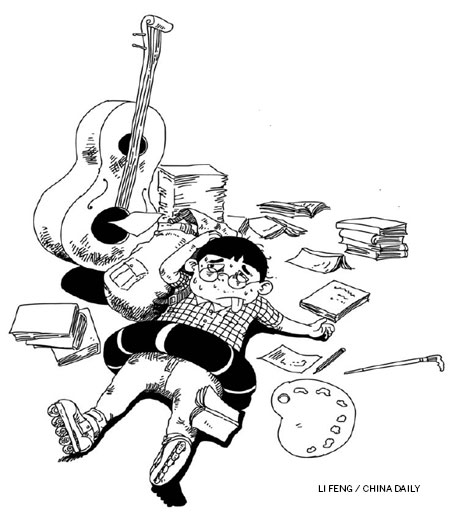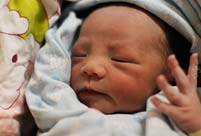 PLA aerobatic team arrives in Russia for air show
PLA aerobatic team arrives in Russia for air show
 Fairytale destinations around world
Fairytale destinations around world
 Tranquil scenery of Baiku Co Lake in Tibet
Tranquil scenery of Baiku Co Lake in Tibet
 World in photos: (Aug.12-Aug.18)
World in photos: (Aug.12-Aug.18)
 Lady of mystery: Female SWAT team in prison disclosed
Lady of mystery: Female SWAT team in prison disclosed  Art-like scenery of Zoige
Art-like scenery of Zoige
 Art exhibition in tribute to Chavez held in Venezuela
Art exhibition in tribute to Chavez held in Venezuela
 Reservoirs in S China start to release floods
Reservoirs in S China start to release floods
 Top 10 naked hotels in the world
Top 10 naked hotels in the world
 |
| (Photo/China Daily) |
Less homework means more time to play for children. In reality, however, the equation is not that simple, at least not for Chinese children who spend their summer holidays running from private tuition classes and summer camps to training centers for special disciplines even if they are free of "official" homework.
Chinese education authorities have been trying to lessen the burden on young students. This year, primary and middle schools in Beijing and many other cities have followed local education authorities' instructions to reduce the workload of children during the summer holiday by assigning them little or no homework and banning additional training classes run by public school teachers. And the little homework that students were given was innovative in nature.
The zhongkao (senior high school entrance examination) and gaokao (national college entrance examination) put Chinese students under tremendous pressure from a young age, from the primary school level, to be precise. According to a study led by Therese Hesketh, a professor at University College London, one in every three Chinese primary school child suffers from psychological stress because of the rigid exam-oriented education system.
As a result of such stress, children suffer from a host of ailments like headaches and stomach pains. Unfortunately, high levels of stress and psychosomatic diseases have forced some teenagers to even commit or attempt suicide.
The public has been urging the education authorities to take measures to reduce the workload of young students, and governments at all levels have adopted some measures to do so. But without reforming the score-fixated zhongkao and gaokao, the authorities cannot truly reduce the stress of students.
Less homework from school has, to a certain extent, made parents force their children to focus more on off-school tutoring and training to enable them to excel in the fierce competition to squeeze into elite schools. "Even if there are fewer tests and no rankings in school, every student knows where he/she is in the class", says a public primary schoolteacher, surnamed Lin from Beijing. "The total number of students in schools is getting smaller, but so is the quota for key middle schools."
Some parents do not seem to borrow schools' practice of reducing students' burden, because they believe it does not address the core problem with the education system and could intensify competition and widen the education gap between the rich and the poor. In fact, less homework may be good news for China's emerging single-child middle-class parents, who are capable of going to any length to ensure their wards get the best possible education, helped by private tuitions to excel in exams.
Lower-income families, however, don't have the financial resources to pay for additional courses. Still, some choose to send their children to inexpensive training and/or tutoring programs, because clearing zhongkao and gaokao may be the only way to improve their future.

 Fairytale destinations around world
Fairytale destinations around world Top 10 Chinese provinces for the well-heeled
Top 10 Chinese provinces for the well-heeled  Fan Bingbing poses for Malaysian magazine Citta Bella
Fan Bingbing poses for Malaysian magazine Citta Bella Art exhibition in tribute to Chavez held in Venezuela
Art exhibition in tribute to Chavez held in Venezuela Wild dream: Hell-like training for bodyguard
Wild dream: Hell-like training for bodyguard  Zhang Xinyi covers COSMOPOLITAN
Zhang Xinyi covers COSMOPOLITAN China’s weekly story
China’s weekly story  The story of a savior sibling
The story of a savior sibling A collection of bizarre rooftop buildings around China
A collection of bizarre rooftop buildings around China Escort taskforce holds live-fire training
Escort taskforce holds live-fire training Enjoy your time in Maldives
Enjoy your time in Maldives Group wedding ceremony in Xinjiang
Group wedding ceremony in Xinjiang The world's biggest pure gold mascot
The world's biggest pure gold mascot Those embarrassing copycat buildings
Those embarrassing copycat buildings Weekly Sports Photos
Weekly Sports PhotosDay|Week|Month